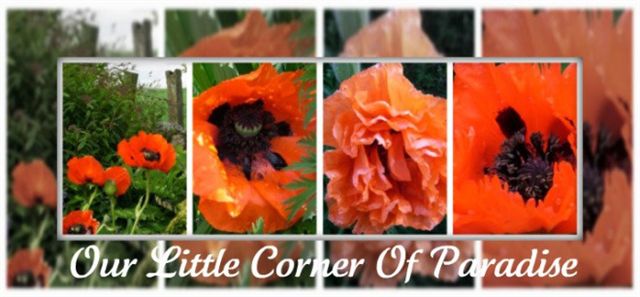
 Many years ago, a dear friend, an octogenarian at the time, offered me a tiny rose sapling which the birds, no doubt, had helped to seed onto her drive. I took it home and potted it up, nurturing it carefully till it was sturdy enough to be planted out. She had referred to it as one of the cabbage roses, so-called because the flower-heads bear numerous thin overlapping petals.
Many years ago, a dear friend, an octogenarian at the time, offered me a tiny rose sapling which the birds, no doubt, had helped to seed onto her drive. I took it home and potted it up, nurturing it carefully till it was sturdy enough to be planted out. She had referred to it as one of the cabbage roses, so-called because the flower-heads bear numerous thin overlapping petals.
I have learned since that it has a fascinating history, long associated with Scotland, and is known as a cheerful little Scots Rose or Burnet Rose, greatly favoured by Gertrude Jekyll, who frequently used them in her gardens. Scottish nurserymen were the first to raise the double forms of this species, named on the RHS database as Rosa Pimpinellifolia. In Scandinavia it is associated with Midsummer and is known as the Midsummer Rose or St John’s Rose.
A Rose-Bud By My Early Walk
A rose-bud, by my early walk,
Adown a corn-enclosèd bawk,
Sae gently bent its thorny stalk,
All on a dewy morning.
Ere twice the shades o' dawn are fled,
In a' its crimson glory spread,
And drooping rich the dewy head,
It scents the early morning.
Robert Burns.


























4 comments:
Thanks for visting India Garden. Your blog is very nice and refreshing. Besides the photographs, which are absolutely delightful I love the way you have detailed about them.
Dear Wildlife Gardener,
The Scots Rose is lovely. I am learning so much everyday about plants from your blog.I am very grateful to you.I just wonder how many varieties of birds visit your garden (being an ardent admirer of birds,my first thought when I look at flowers is for the birds that come to feed on the nectar, you see). Your wildlife garden must be truly a haven for birds!
Thank you for your kind comments, Green Thumb. I am writing the story of how we created our wildlife garden. It is gor my boys and any future grandchildren.
If you want to know about the birds who come to visit our garden, Thalia, you may like to scroll back to 15th, 16th, 17th, 18th and 19th February and read about them there.
What a lovely rose and so interesting to read its history.
Post a Comment